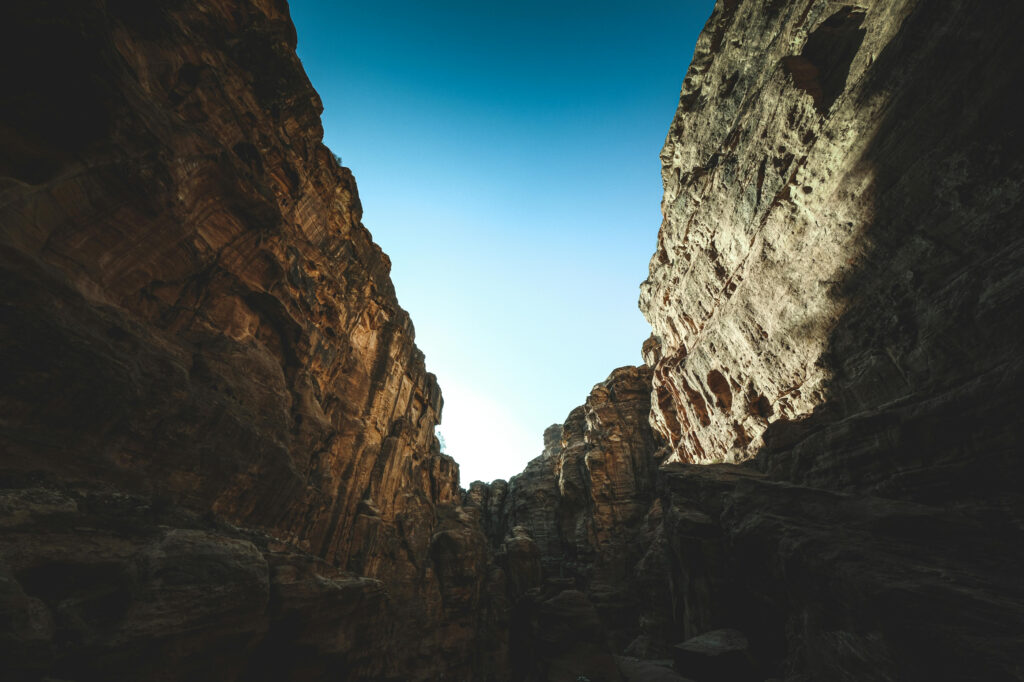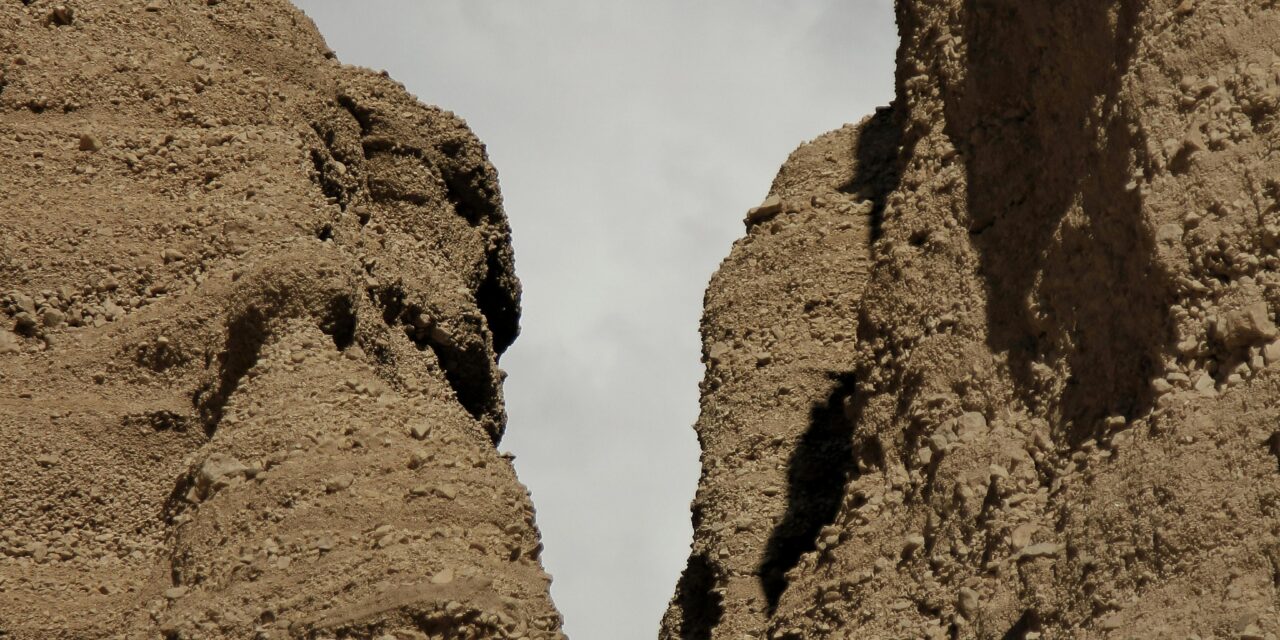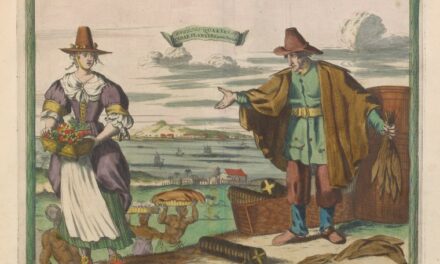They called it “standing in the gap.”
At first, it evoked an image of the Grand Canyon, or something of the sort. I was on one side, and God was on the other, and they were in the middle. That’s where the image gets a little hazy. If they’re standing in the canyon, how are they helpful? Are they piled up on top of each other in such a way that I can just walk over them? Are they holding their hands up so that I can crowdsurf? Are they powered by fairy dust, waiting to take my hand Peter Pan-style and fly me away to Neverland? Is there a bridge? I’ve never seen a bridge in any pictures of the Grand Canyon. How does this work?
I digress. I suspend my disbelief, as is so often asked of me in faith. We are not about what makes sense. God is not in that business.
In Scripture, the phrase comes from Ezekiel. “I looked for someone among them who would build up the wall and stand before me in the gap on behalf of the land so I would not have to destroy it, but I found no one.” I was a new convert when I first heard the phrase, taken out of context and shortened to suit, like “blood is thicker than water” or “the customer is always right.” I had been given the impression that this God I had decided to believe in was over his smiting phase, or at least saved it for more serious offenses than skipping church every so often.
They said they were doing this, “standing in the gap for you,” when I was far from God, or when they thought I was. When they decided I was, based on my adherence (or lack thereof) to a prescriptive list of behaviors, an evangelical Ten Commandments. Thou shalt attend church at least three times a week. Thou shalt not question the pastor. Thou shalt vote Republican. No matter that Paul said neither death nor life, neither angels nor demons, neither the present nor the future, nor any powers, neither height nor depth, nor anything else in all creation, will be able to separate us from the love of God.
They didn’t know where my heart was. They did know that they hadn’t seen me in church that week, and that was enough. They did know that I still worked my grocery-store job on the occasional Sunday, because the store paid people extra to work on the one day that everyone wanted off. Sometimes I would come to church anyway and sit in the back of the sanctuary so that I could slip out mid-sermon without being too much of a distraction, get my Jesus fix without taking up too much space. Foolish me, thinking it was better to be there for part of worship than for none of it at all. Sometimes I would skip church altogether on work days to avoid the side-eyes – two parts judgment, one part pity, a few dashes of guilt, shake over cold shoulders, serve in communion thimbles. Either way, I was still breaking one of the rules, and that was enough. They did know that when I did show up, when I did stay, my family didn’t come with me, and that was enough.
When I didn’t make the weekly cameo, a card showed up in the mailbox. “We’re standing in the gap for you!” it read in the handwriting of the girl from youth group who worked in the church office after school – shockingly pristine print, even for a sixteen-year-old. When I missed another week, an invitation to coffee at the pastor’s office would follow.
The church office was not in the church, but on one of the main streets through town. The door, tucked away next to the art gallery, was thick glass with a pull handle – transparent and unassuming, with a clear view of the dark, carpeted staircase leading to the office complex on the second floor. Inside, it felt warm for a minute in contrast to the coastal chill outside, but the warmth didn’t last. A window at the top of the stairs overlooked the street, and somehow even though we were only on the second floor, everyone outside looked so small. In retrospect I wonder if this was intentional – the positioning high above the passersby, as if looking down on them from heaven. Upstairs was a collection of offices, all with their doors flung open at all times. Nothing was sacred. The church’s private school met at one end of the hallway, and Pastor Greg’s office was at the other.
Pastor Greg’s office was an academic’s dream, with its big windows and its floor-to-ceiling bookshelves stuffed with Spurgeon, Piper, Tozer, Bruggemann – all the conservative greats. The piece de resistance was the large mahogany desk. It was the kind of desk that always seems too large to be necessary or productive but makes the person on the other side of it look Very Important. Pastor Greg sat behind the desk, against the backdrop of his books, and I sat on the opposite side. Behind us sat a small table, a plush and pristine white-cushioned chair on either side, and I remember wondering why we weren’t sitting over there, why this had to be a Meeting and not just a chat.
I remember all of these things, but I don’t remember actually drinking any coffee, or tea or cocoa or even water. While I had not yet made the acquaintance of the joy incarnate that is a good cup of coffee, I remember thinking even then that “let’s have coffee” should not be a euphemism. If you invite someone to coffee, particularly if you do so with the intention of telling them that they are damned for all eternity based solely on their irregular church attendance, you should actually offer them coffee, or at least something warm to hold and sip from and maybe stir occasionally. It makes the whole affair feel a little less like an indictment.
These meetings were always variations on the same theme. Where is your family? What does your home life look like, if it is not compelling them to come to church with you? What secret sins have you not confessed? They always ended in tears and prayer, an office-space altar call. I would always walk out of the office with tear trails staining my face, the hallway feeling twice as long on the way out as it did on the way in, hoping no one would pop their head out of one of the many open doors to bear witness to my shame.

In my college ministry, I was invited to dozens more of these coffee-less coffee dates. I started bringing my own coffee.
It took five years of these coffee dates to leave. The last one was with Chuck, the campus ministry leader, at the end of my sophomore year of college. We sat outside – surrounded not by desks and books, but by trees and sunlight. We both knew that this would be the last time I would sit through this, but neither of us said it. We exchanged pleasantries about my writing classes, my final exams, the campus ministry we worked in together. We did not make eye contact. I stared out over the quad and into the trees at the edge of the campus as Chuck spoke – his last attempt to bring me back into the fold.
When I left, we did not hug. I did not cry until he was out of sight. I saved my tears for the river, taking a detour across campus to feel the sand beneath my feet.
I wonder what the bottom of that gap we were always talking about looked like. It always sounded bottomless, like if you fell in, these people supposedly standing in it were the only thing standing between you and hell. But maybe there was a desert down there. Maybe there was a rushing river.
No one is standing in the gap for me these days, but when I think of those words, I still cringe a little. I still picture a big mahogany desk, with me on one side and them on the other and two perfectly good comfy chairs behind us that would make for a very nice place to sit and drink a couple of lattes from the coffee shop on the corner.
I want to go back in time and respond to one of those cards.
Dear Pastor Greg,
There is no gap.
There is you and me and an overlarge desk and no coffee, but there is no gap.
It’s a river.
Meet me there.
Bring coffee.







